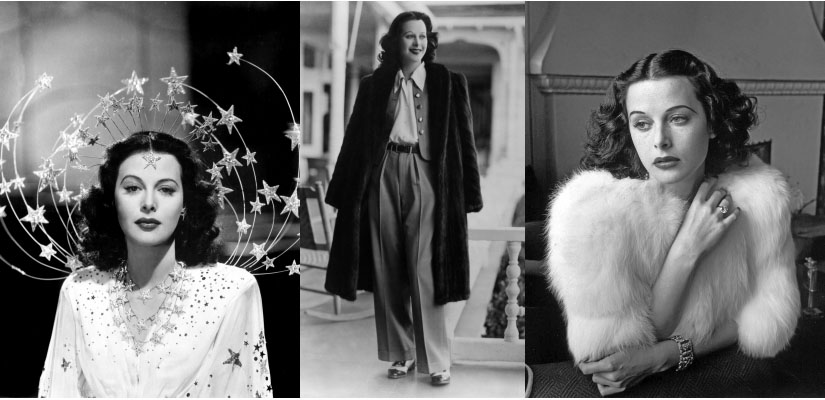By Rebecca E. Jones
Members of the VCU schools of Engineering and the Arts, as well as the community, gathered at the university’s Grace Street Theatre for a screening of “Bombshell: The Hedy Lamarr Story,” an award-winning documentary about about the legendary screen actress’ little-known — but important — contributions to science and engineering.
“Hedy Lamarr was many things over the course of her life: appreciated for her glamorous beauty and acting, reviled for her German Jewish heritage in a time of war and later, as her youth and beauty faded, she was forgotten, and her intellectual contributions were ignored,” said Barbara D. Boyan, Ph.D., Alice T. and William H. Goodwin Chair and dean of the VCU School of Engineering, as she welcomed the audience to the event. “In our own time, we continue to struggle with allowing women to be respected and appreciated for all of the things that make up who they are. I hope this movie continues to provoke conversations about the relationship between the arts and sciences and about the roles that women play in society.”
“Bombshell” tells the story of two Hedy Lamarrs. One is the iconic Hollywood actress whose face, which was also the model for Snow White and Catwoman, is recognizable even to those unfamiliar with her films of the 1940s. The other, less familiar, Hedy Lamarr is the tireless inventor whose accomplishments were eclipsed by the glamour that had catapulted her to fame. Until “Bombshell,” Lamarr’s status as the inventor of frequency hopping, her masterpiece, was largely unknown. The invention itself, however, is used millions of times daily as the basis of secure WiFi, GPS and Bluetooth.
Lamarr, who had escaped her native Austria as a Holocaust refugee, developed frequency hopping as a covert communications system to help the U.S. defeat the Nazis. Her co inventor was avant-garde composer George Anthiel. Their system, partly inspired by player-piano rolls, transmits radio signals along rapidly changing (or "hopping") frequencies and makes radio-guided weapons more resilient to detection and jamming. They received a patent in 1942 and gave the technology to the U.S. Navy free of charge. The Navy found the device bulky and complicated, as well as whimsical in its musical origins, and set aside the technology for decades.
As a result, Lamarr never profited financially from her invention, which in today’s dollars would be worth about $30 billion. She was, however, belatedly honored by her scientific peers. In 1997, when she was broke, forgotten and living as a recluse, she received the Electronic Frontier Foundation Pioneer Award. The film includes footage of her son Tony accepting the honor on her behalf, only to be interrupted mid-acceptance speech by his mother calling his cell phone to ask “How did it go?”
Lamarr’s recorded voice is a recurring presence throughout the film, in fact, and nowhere more movingly than in the film’s final sequence. In a recorded message to her son, Lamarr recites a portion of “The Paradoxical Commandments” from a book titled “Anyway” by Kent Keith, M.D. The lines reveal Lamarr’s astonishing lack of bitterness at the end of her life. They also capture the persistence essential to high achievers in any creative field, especially engineering and the arts.
“I’ll read you something pretty,” Lamarr said to her son. The following lines are heard in voice-over above a montage of Lamarr’s early film moments:
People are unreasonable, illogical and self-centered.
Love them anyway.
If you do good, people will accuse you of selfish alternative motives.
Do good anyway.
The biggest people with the biggest ideas can be shot down by people with the smallest minds.
Think big anyway.
What you spend years building may be destroyed overnight.
Build anyway.
Give the world the best you have and you’ll be kicked into the teeth.
Give the world the best you’ve got anyway.
